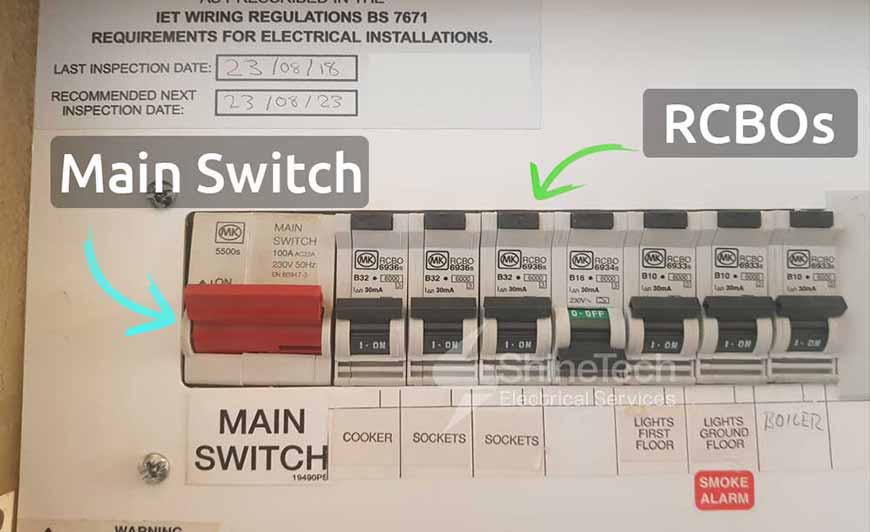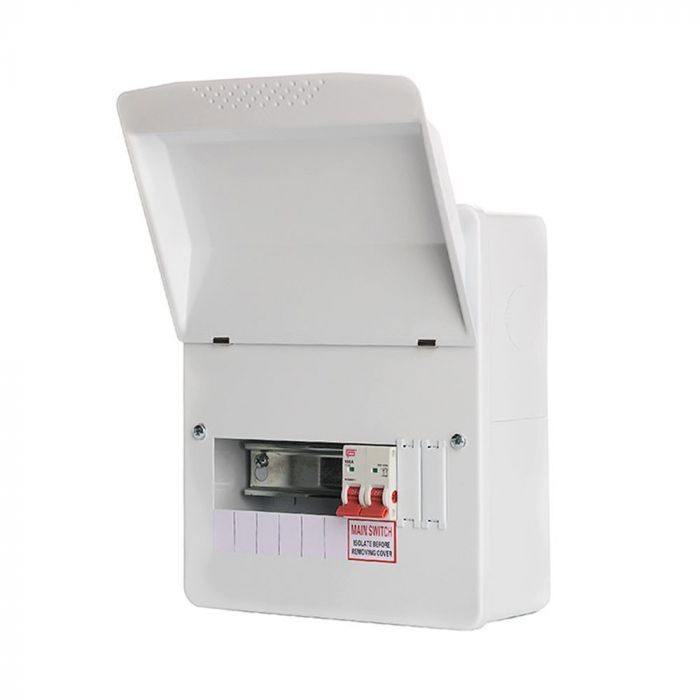How to Choose the Right RCBO CONSUMER UNITS for Your Electrical Requirements
The Role of Consumer Systems in Effective Energy Monitoring Equipment
Customer systems are important to reliable power administration systems, offering as the key circulation points for electrical power within frameworks. The arrival of clever modern technologies has further enhanced their functionality, permitting for real-time data surveillance and nuanced energy consumption evaluation.
Recognizing Customer Systems

Recognizing the duty of consumer devices begins with acknowledging their crucial function in protecting electric systems. By isolating faults within particular circuits, consumer units avoid prevalent outages and possible fire hazards. This seclusion is achieved through using breaker that trip or merges that strike when a mistake is detected, thereby removing the electric flow to the influenced circuit.
Additionally, customer units assist in the well organized distribution of power, boosting the performance of energy use. They enable the organized administration of electrical lots, which can be particularly vital in business and industrial settings where need can change dramatically. Appropriately maintained consumer devices add to the longevity of electric systems and aid in reducing downtime caused by electric failings, eventually supporting the smooth operation of energy-dependent centers.
Smart Technologies Integration

A crucial benefit of wise customer devices is their ability to take advantage of progressed formulas and maker understanding for predictive analytics. This permits preemptive changes based upon use patterns, weather report, and various other variables, dramatically raising general efficiency. Additionally, clever consumer systems facilitate need action programs, where power usage can be dynamically changed during top durations to maintain the grid and reduce prices.
The combination of renewable resource resources, such as solar and wind, is also streamlined via clever customer devices. By smartly handling the intermittency of these sources, these systems make certain a balanced and trusted energy supply. Furthermore, wise consumer systems improve individual interaction by supplying detailed understandings and remote capacities through mobile applications, fostering a much more positive technique to energy conservation and sustainability.
Monitoring Energy Intake
Structure on the capabilities of clever innovations assimilation, keeping track of power usage becomes an essential focus within power management systems. By leveraging innovative metering facilities (AMI), real-time information on energy use can be collected at granular degrees, providing useful insights right into usage patterns and peak need periods.
Smart meters and Internet of Things (IoT) devices play a crucial duty in this monitoring process. These devices can track power use in real-time, transmitting data to central systems for analysis.
The integration of these modern technologies not only empowers consumers with comprehensive click here for info information regarding their energy usage however additionally supports energy providers in taking care of load distribution better. Ultimately, constant and exact tracking is important for accomplishing energy effectiveness, expense financial savings, and sustainability objectives within power administration systems.
Optimizing Home Appliance Usage

One effective method involves identifying optimal and off-peak hours to move energy-intensive tasks, such as washing or dishwashing, to times when power need is reduced. This not only lessens pressure on the grid yet also profits from reduced energy tariffs. Furthermore, incorporating artificial intelligence formulas enables predictive maintenance, guaranteeing home appliances operate at optimal effectiveness and lengthening their life expectancy.
Energy administration systems can additionally integrate user-specific preferences and habits to tailor home appliance use routines. For instance, clever illumination systems can readjust brightness based upon tenancy and all-natural light accessibility, while heating and cooling systems can maintain comfort degrees without extreme power use.
Encouraging Sustainability
Advertising sustainability within energy management systems entails not only enhancing efficiency yet additionally fostering eco responsible practices. Customer systems are indispensable to this process, as they give real-time information and control devices that enable individuals to check and reduce their energy usage. By leveraging innovative technologies, customer units can identify energy-saving opportunities and facilitate the assimilation of renewable resource resources like solar and wind power.
One crucial element of advertising sustainability is enlightening consumers on news the benefits of liable power use. With thorough understandings supplied by customer devices, customers can make informed decisions that lessen their carbon impact. For example, these units can advise optimum times for running high-energy devices based upon grid demand and renewable power availability, consequently minimizing dependence on fossil gas.
Additionally, consumer units sustain the fostering of wise grid modern technologies, which boost the total effectiveness and dependability of power circulation. By enabling two-way communication between customers and utility service providers, these systems can dynamically change to energy demands, lowering waste and advertising making use of sustainable energy practices.
Conclusion
Consumer devices, as integral components of power administration systems, dramatically improve electrical safety and effectiveness within buildings via circuit security and smart modern technology assimilation. Real-time data tracking and analysis facilitated by these units maximize energy intake and home appliance usage. Furthermore, the incorporation of eco-friendly energy resources advertises sustainable techniques, contributing to reduced total energy intake and lower carbon impacts. Consumer systems play an essential role in advancing both power efficiency and ecological sustainability.
Breakthroughs in smart modern technologies have reinvented the capabilities of energy monitoring systems, particularly with the assimilation of wise customer devices.Structure on the abilities of smart innovations combination, checking energy usage becomes a vital emphasis within power administration systems.Effective appliance usage optimization is a vital part of power monitoring systems, intending to enhance performance and decrease unneeded energy usage.Consumer units, as important parts of try this power monitoring systems, considerably improve electrical security and performance within buildings with circuit security and smart technology combination. In addition, the unification of renewable energy resources advertises lasting practices, adding to reduced general energy usage and lower carbon impacts.